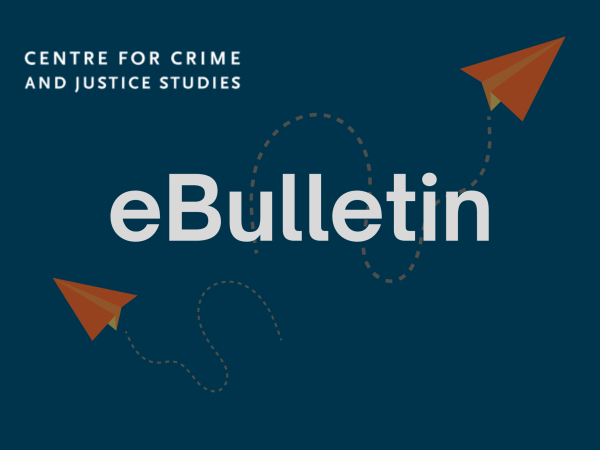
Our latest e-Bulletin, sent out on 26 November, 2022.
"My brother's experience of the IPP sentence was one of shock, frustration, loss of control over his entire life and his progression but ultimately a complete loss of hope".
The words of Donna Mooney, whose brother Tommy took his own life in 2015, having served six years of what was meant to be a four-year "Imprisonment for Public Protection" (IPP) sentence.
It is doubtful that the IPP sentence offers anything further, in terms of public protection, than prison sentences with a clear end-date. But it excels in causing pain and distress to those imprisoned under its unforgiving terms, their families and friends.
Over 1,700 IPP prisoners have never been released, despite the sentence being abolished nearly a decade ago. More than 95 per cent of those unreleased IPP prisoners have served sentences longer than the original 'tariff' set by the court. The mental anguish it causes is enormous. For some IPP prisoners it proves unbearable.
Donna Mooney, and her fellow campaigner against the IPP sentence, Shirley Debono, will be joining me in February to talk about their work pressing for wholesale reform.
This week, the House of Commons Justice Committee held its first evidence session as part of its inquiry into the IPP sentence, at which both Donna and Shirley spoke.
Next week, in our latest 'Last month in criminal justice' programme, I will be reviewing the Justice Committee session with guest panellists Charlie Weinberg from Safe Ground, Pavan Dhaliwal from Revolving Doors Agency, and former prison officer and prison governor Ian Acheson.
Other developments we will be discussing include the imprisonment of nine Insulate Britain protestors for blocking roads, the Liverpool women's hospital bomb blast, and what the panellists would like to see in the much-anticipated Prisons Bill.
Join me, Charlie, Pavan and Ian for a stimulating discussion of criminal justice developments over the past month.

Richard Garside
Director
Events
Our next edition of 'Last month in criminal justice' is next Wednesday, 11.00am-12.30pm. We're expecting a lively conversation with a range of guests from across the criminal justice world. If you haven't registered yet, you can do so here.
The following week on 8 December, you can watch 'Lunch with...Joan Smith', register here. That will be the last episode for 2021 but we'll be back in 2022 with episodes featuring Whitney Iles in January and Donna Mooney and Shirley Debono in February. Register for any or all of our 'Lunch with..' webinars here.
News and commentary
If you haven't yet attended any of our webinars, why not take a look at some of the best clips here? We'll be publishing more over the coming weeks so keep an eye out.
We have published the full video of our recent 'Last month in criminal justice' webinar with Dr Hannah Quirk, Helen Mills, Richard Garside and Professor Jo Phoenix here.
As the Police, Crime, Sentencing and Courts Bill continues to make its way through parliament, last Monday an amendment the Centre has supported was debated at the Lords Committee stage of the Bill. Find out what happened to the amendment to reduce the use of custody for less serious offending and watch important contributions to the debate from Lord Ponsonby, Lord German and Lord Marks here. If you're interested in our work on short sentence reform to date, look at what we've been up to.
Project update
Watch Matt Ford discussing 'After Prison', our ongoing project asking communities to re-imagine what their local prison site could be used for, if it was not used for imprisonment.
Eye on criminal justice
Many key issues the Centre is working on currently or has worked on have been subject to closer scrutiny recently via media and parliamentary attention.
Last week Vikram Dodd reported that stop and search has risen by 24 per cent in a year and confirms - once again - that the practice disproportionately affects young, minority ethnic men. We published research in 2018 by Ben Bradford and Matthew Tiratelli which looked into the effectiveness of stop and search. Whilst the question of effectiveness is complex, Bradford and Tiratelli stated in their introduction that ethnic and racial disproportionality presented in stop and search statistics is undoubtedly real. After Katrina Ffrench, Executive Director of Unjust, was accused of 'race grifting' this week on TalkRadio for pointing out this disproportionality, it remains clear that many still don't believe the data. Check out our work on stop and search, which includes an interview with Katrina and research findings by Bradford and Tiratelli.
A new briefing by The Health Foundation - COVID-19 and the prison population Working paper for the COVID-19 impact inquiry - assesses how prisons fared during the first year of the pandemic. They find that pandemic strategies in prisons exacerbated existing inequalities. During the pandemic we held three webinars on the impact of Covid-19 and prison regime changes on prisoners asking and exploring these very questions, which you can watch here.
One of the subjects we'll be discussing in next week's edition of Last month in criminal justice is the state of mental health in prisons. A new joint inspection report on the provision of mental health care for prisoners has found myriad obstructions to adequate support. You can watch Donna Mooney from UNGRIPP discussing the profound mental health impact on IPP prisoners here, Matt Ford talking about the general crisis of mental health in prisons here and our webinar guests talking about the latest statistics on suicide, self-harm and assault in prisons here.
Donations
We'd like to take this opportunity to thank every one of you who has donated to us this year so far. Many of you who attend our webinars, read our research and peruse our commentary have donated and we're grateful for all donatins, large and small.
If you like what we do, and can afford it, why not pitch in so we can continue?
